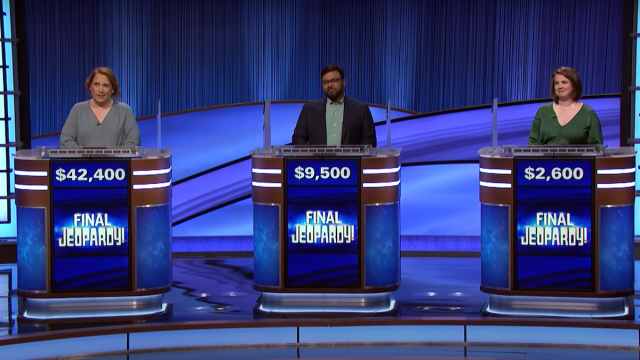“Jeopardy!” Champs Reveal Secret Trick to Winning—And You Can Use It, Too
Jeopardy! champions might make it look easy, but there’s more that goes into winning the game besides being good at trivia. Many Jeopardy! winners train hard in the lead-up to their appearance on the show, whether that means reading books, watching movies, or studying old episodes. But, there is also a secret strategy many successful contestants have credited for their wins, and it’s something that anyone can use.
In an interview with the New York Post, a couple of Jeopardy! champs revealed their biggest advantage when it came to bringing home some serious cash from the game show. Read on to find out more.
RELATED: Jeopardy! Just Did This for the First Time Ever.
They studied with a database called J! Archive.
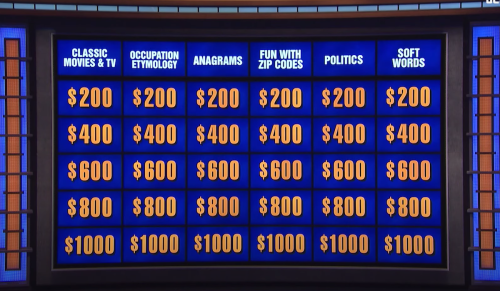
J! Archive is a “fan-created archive of Jeopardy! games and players” with “428,903 clues and counting.” On the website, anyone can view the clues from any episode of the game spanning back to 1985. Plus, you can challenge yourself to see if you know the correct response by hovering your mouse over the clue. The database also includes who won the games and who answered each clue correctly. On top of that, J! Archive can be searched to find out more about common topics. For example, search “Abraham Lincoln” and every time the president was involved in an answer or question will appear.
It taught them how to beat the game.
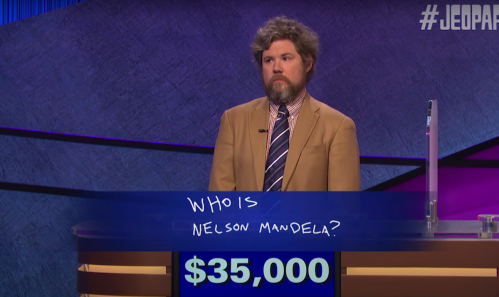
Austin Rogers, who won 12 games, told the New York Post that he “would open random games [on the archive site] and play them in my head. I noticed what comes up the most. If a question says ‘artist in Iowa,’ it has to be Grant Wood. And if it says ‘Thornton Wilder,’ the correct response always has to be ‘Our Town‘ … It tells you that if ‘Cubist’ comes up, the answer will almost always be ‘Picasso.'”
Similarly, contestant Jeffrey Williams, who competed in one episode, said he studied the database to “see holes in my knowledge.” He explained, “It showed me that I didn’t know much about Nobel Prize winners. So I went down a Wikipedia rabbit hole on that one—and benefited when a category called ‘First Nobel’ came up. It also helped me to figure out where clues were leading. You start to notice wordplay in the clues, which guide you to the correct answers. You realize that the clues are more than just trivia questions.”
It’s a useful tip for hopeful contestants.
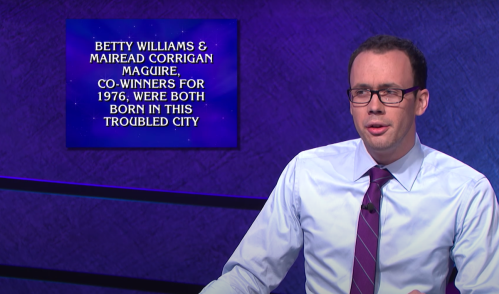
Whether you want to get cast on Jeopardy! in the first place or have already been chosen, J! Archive is a popular way to prepare. In 2013, six-time winner Jared Hall wrote a list of tips to help people win the show for Mic and mentioned J! Archive.
“Thanks to the tireless labors of the folks who run j-archive.com, you can also review almost every Jeopardy clue that’s ever aired,” Hall shared. “Take advantage of this! You’ll begin to notice recurring themes, repeated phrases, and subtle clues all over the board. Once you start to get inside the minds of the people who write the clues, coming up with your responses will be much easier.”
For more celebrity news delivered right to your inbox, sign up for our daily newsletter.
The database is exhaustively filled out by hand.
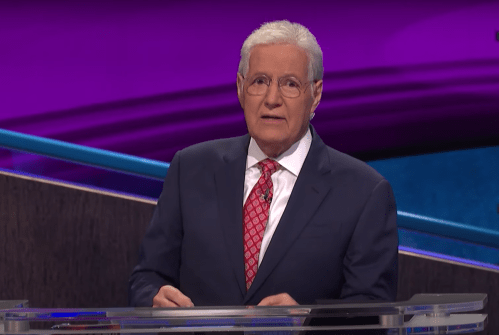
J! Archive was created by Robert Schmidt, who told Polygon in 2020 that he’s proud when he hears contestants say that they used the database to study. The archive is filled out by individual people, who watch videos of old episodes and current ones and write down all of the information, from each clue to what contestants shared in the interview portion of the show to how much they wagered in Final Jeopardy!.
“We have an almost completely full dataset of Jeopardy! strategy,” said archivist Andy Saunders. “We can go back 20 years, and look at that data, and say, ‘Okay, nine leaders out of 10 risk this specific amount in this Final Jeopardy! situation. You can then make your own strategy by taking that into account.”
Rogers and Williams trained in other odd ways, too.
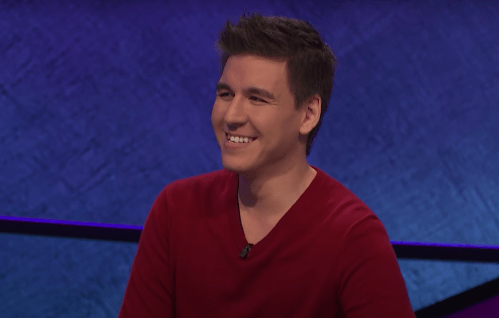
In the New York Post interview, the two former contestants also shared some of the other ways they got ready for the show. Rogers practiced for using the buzzer. “I walked around New York with a thumb exerciser on my hand; it’s normally used for rehabbing fingers and has a resistance similar to that of the Jeopardy! buzzer,” he explained. “I listened to episodes on my phone, practiced buzzing in and looked like a frigging weirdo.”
As for Williams, he said he followed a tip from James Holzhauer, who famously won 32 games. “I picked up a tip from Holzhauer and bought children’s books on world history and geography and presidents,” Williams said. “Holzhauer correctly pointed out that if you understand how the clues are written, a children’s level understanding of the topics provides big enough signposts to get you into the ballpark of an answer.”
RELATED: These Are the 3 People Alex Trebek Suggested to Replace Him on Jeopardy!
